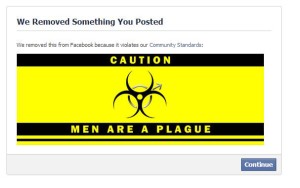Social media has become both a constant irritant and an indispensable part of my life. I don’t remember what I was thinking when I joined Facebook – I may have read somewhere that I had to join social media to “develop a platform.” I now consider Facebook indispensable to networking and keeping abreast of opportunities, while I question its value as a platform. At times the whole Internet, but social media in particular, feels like a bottomless drain on my energy. There’s so much information, so much of it laced with fear, so little of it containing any real substance. It’s the journalistic equivalent of fast food: cheap but unsatisfying, fattening but lacking core nutrients.Sometimes, I just have to stay home and virtually not go anywhere.
But surprisingly, when the specter of having to leave Facebook arose about six months ago, I was panicked. How would I function professionally? How could I get information that can’t be classified as news because it pertains to a relatively small group of people, spread over wide geography? How could I get information that can’t be classified as news because the story develops collaboratively, over the space of a day or two?I don’t know if the reason for my speculating such a drastic move is, ultimately, important. The large social media outlets like Facebook, Tumblr, and Twitter are going to eventually implode as they become huge unwieldy conglomerates. The result will not be an exchange of Reddit for Yahoo or Facebook for Google+, but loosely connected independent sites catering to various specialized, alternative, or marginalized communities. Facebook tried to develop a series of small networks through its “groups,” Google+ has tried to do this in a different way through its “circles,” and Reddit has its “subreddits,” but ultiminately these are starting to collapse through the limits of size and centralized administration.

This graphic was removed on Facebook and its account holder suspended.
Which does bring me to the particulars of why I think it is likely that I will, eventually, need to leave Facebook. There has been a great deal of glorified
sexualized violence toward women on Facebook, and attempts to address this have brought only short-term solutions. About a year ago, feminists began collectively trying to bring the worst of this violence to the attention of administrators, asking that it be banned. Almost always this went nowhere. Eventually, feminists began contacting Facebook advertisers, letting them know that their advertisements were appearing on group sites dedicated to graphic sexualized portrayals of violence against women. This got a reaction. Facebook began losing revenue and some of these sites were removed. Ultimately Facebook decided to make its advertising streams more sophisticated, so family-friendly advertising would not appear on a page titled something like “Chokes the Bitch.”Which completely neutralized this organizing/activist tool.On the other side of the equation, prominent feminist activists are routinely targeted on Facebook and reported to administrators for their pictures and speech. One woman had her account suspended because she posted a textbook-style illustration of female reproductive anatomy, with ovaries, Fallopian tubes, uterus, cervix, etc. Another woman was suspended because she posted a picture of an ancient Greek statue. It’s not clear that Facebook is deliberately targeting feminists; when large groups of tech savvy males and their sock puppets submit complaints certain algorithms kick in, and even individuals moderating complaints may rely on the numbers of reporters rather than wading through the stream. The same thing happens in the comments section of online newspapers – a lot of feminist viewpoints do not get posted because so many males object. Twitter is even worse, veering into the realm of sexual harassment and threats of violence. Men get their back up when women call for a ban on this type of behavior, saying this is an impingement on “free speech,” but the whole purpose of sexualized threats and graphic violence is to silence the speech of women. So if a significant number of feminists began calling for a boycott of Facebook or Twitter, there’s a good chance that I will feel compelled to go along with it. So far, women have been biding their time until better alternatives arise. I do believe that eventually this will happen. If social media has “been woven into the fabric of our lives” as everyone likes to say everywhere, there are some glitched stitches quite a few rows back, and the whole thing will have to be unraveled.
To keep abreast of updates on this blog, those of you who friend me on Facebook or follow me on Twitter can add this blog to your RSS feed (Google it). There is also a place on the right hand column of the main page for you to sign up for email updates of new posts. I will not sell your email or use it for any other purpose; in fact I will not have access to it.

